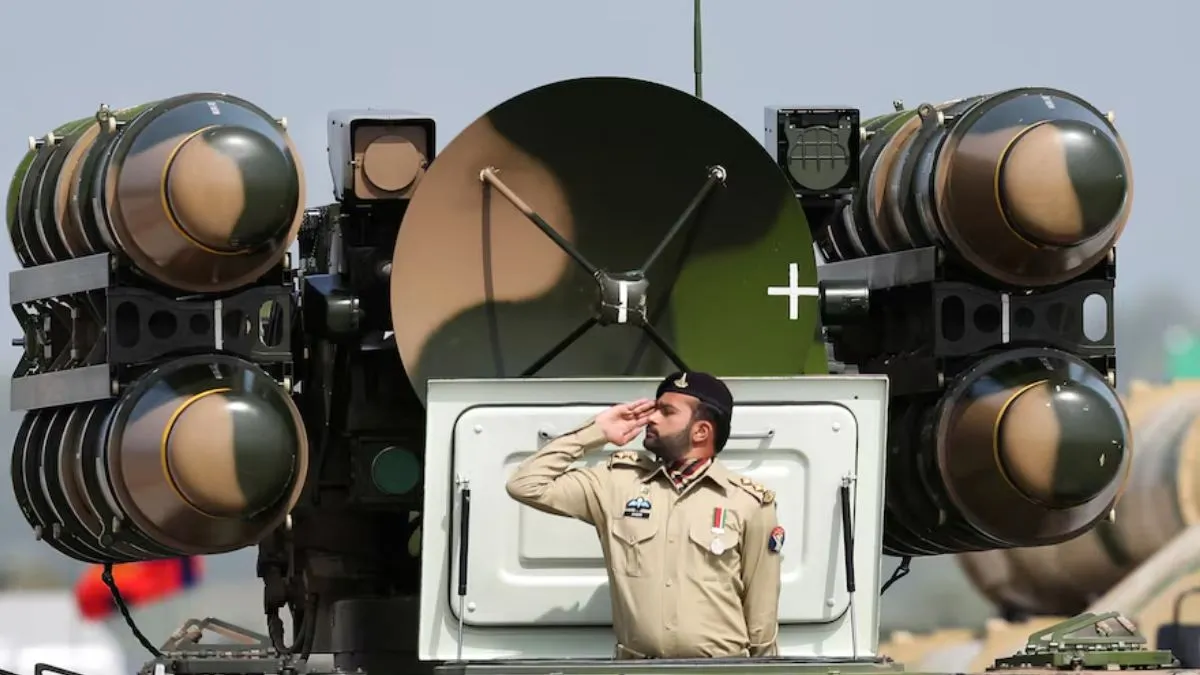- By Supratik Das
- Sat, 21 Jun 2025 12:51 PM (IST)
- Source:JND
In a significant development, the Financial Action Task Force (FATF) has flagged Pakistan for violating international non-proliferation standards by pursuing hidden ballistic missile development through illegal procurement techniques. The revelations comes within FATF's recent report on 'Complex Proliferation Financing and Sanctions Evasion Schemes', based on a 2020 Indian customs seizure of a shipment headed to Port Qasim in Karachi.
Missile-Linked Shipment Seized From China-Bound Ship
The report details, the way Indian customs officers at Kandla Port stopped a Hong Kong-flagged cargo vessel Da Cui Yun in February 2020, following precise intelligence. The ship, which had sailed from China's Jiangyin port, was transporting a huge pressure chamber, which was mis-declared earlier in shipping documents as an industrial autoclave, now established to have potential ballistic missile use. The shipment, which was claimed to be more than 35 feet long, was destined for Pakistan's National Development Complex (NDC), a government-owned agency heavily engaged in the state's long-range missile programme. Experts from India's Defence Research and Development Organisation (DRDO) subsequently participated in the inquiry as the high-risk character of the shipment necessitated.
Under the FATF report, the cargo contained dual-use items vital to missile motor production and coating activities, products specifically cited under Missile Technology Control Regime (MTCR) export control regimes. “The Bill of Lading of the seized cargo provided evidence of the link between the importer and Pakistan’s National Development Complex,” the report stated, highlighting intentional mis-declaration in export documents to avoid detection. The FATF has cautioned that such events pose serious threats to international security, stating, "Proliferation of weapons of mass destruction and related financing constitutes a serious threat to the integrity of the international financial system."
The revelation follows FATF's public denunciation of the April 22 terror attack in Pahalgam, Jammu & Kashmir, which claimed 26 lives. In a rare explicit mention of financing terrorism, FATF stated, "This, and other recent attacks, could not occur without the money and the means to move funds between terrorist supporters." The remark is a move toward greater emphasis on state-sponsored terror, with specific focus on Pakistan. Senior government officials informed PTI that India is gearing up to use the FATF report to drive Pakistan's return to the FATF grey list. Indian officials have apparently made a detailed pitch on intelligence sharing with principal FATF member states, highlighting a strong case for sanctions or monitoring. With the Asia Pacific Group meeting in August and the FATF plenary session in October, India will have to submit an updated dossier. This will comprise not only evidence of terror funding but also breaches related to missile proliferation as well as export control evasion. Government sources quoted by Moneycontrol , reportedly stated that Pakistan is at serious risk of being grey-listed for the fourth time due to its persistent failure to act decisively against terror financing and proliferation-linked activities.
FATF grey listing limits a nation's access to global finance and may affect aid, investment, and trade. Pakistan was delisted in 2022 after a period of close monitoring and promises to reform its financial apparatus. Repeated backsliding might trigger new economic and diplomatic repercussions.

